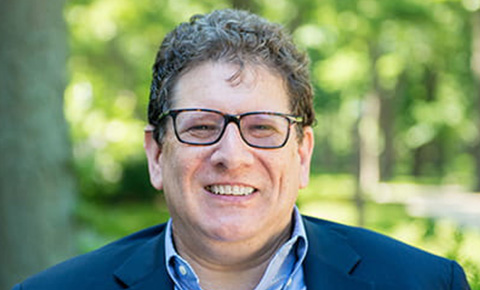Uttal Awarded Spatial Thinking/STEM-Related Grants

David Uttal, the Kenneth F. Burgess Professor at Northwestern University’s School of Education and Social Policy, received three research grants from the National Science Foundation to advance the science of spatial thinking—an essential yet often overlooked skill that underpins success in science, technology, engineering, and mathematics (STEM).
Uttal, one of the world’s leading researchers on maps, space and place, has demonstrated that spatial thinking is foundational to STEM learning, highly trainable, and develops through understanding symbolic representations. His work bridges developmental psychology, education, and cognitive science to show how children learn to navigate both physical and symbolic spaces.
Learn more about the research and funding:
Assessing Spatial Skills in Cognitive Science and STEM Education Research
One of the biggest challenges in understanding how spatial skills relate to success in STEM is the lack of good, easy-to-use tests. Many existing tools are outdated, hard to access, or don’t fully measure the skills that matter most. To fix this, Uttal’s team will review current tests, define the different types of spatial skills, and create a new set of free, high-quality tests that anyone can use. These new tools will be carefully tested to make sure they work well and will be shared openly to help researchers, educators, and others better understand and support spatial learning.
- Principal Investigator: David Uttal
- Co-Principal Investigators: Joni Lakin and Stefanie Wind, University of Alabama
- Award Amount: $1,245,773
Leveraging Smart Objects and AI for Understanding the Role of Language in Spatial Thinking and Learning
Uttal and Subir Biswas, a professor of computer science and engineering at Michigan State University, are studying how young children build spatial skills by playing and talking with their parents. Using smart building blocks that can track how kids build, along with tools that analyze speech, the team will look at how parents’ words and actions help support learning. The goal is to understand what kinds of conversations and interactions best help kids develop strong thinking and problem-solving skills so researchers can create better educational tools. The work builds on a 2021 National Science Foundation grant.
- Principal Investigator: David Uttal
- Award Amount: $335,000
Co-designing a Participatory STEAM Center at a Midwest Children’s Museum
The Children’s Museum Foundation Corp (Kidzeum) received a $149,952 grant from the National Science Foundation’s Advancing Informal STEM Learning program to develop a scalable, community-based model for designing a future STEAM (Science, Technology, Engineering, Arts, and Math) Center.
Led by Wilson and Uttal, the project brings together Kidzeum, Loyola University Chicago, and Northwestern University to collaborate with schools, nonprofits, and local STEM professionals across rural and urban communities. Through co-design practices—including surveys, focus groups, and mapping a community’s assets—the team will ensure that community voices shape the center’s exhibits and programming.
The researchers hope to create a learning network that helps people build job skills and get involved in science and technology, especially in different communities. They will share what they learn across the country to help improve science education outside of schools.
- Principal Investigator: Leah Wilson
- Co-Principal Investigator: David Uttal
Award Amount: $149,952